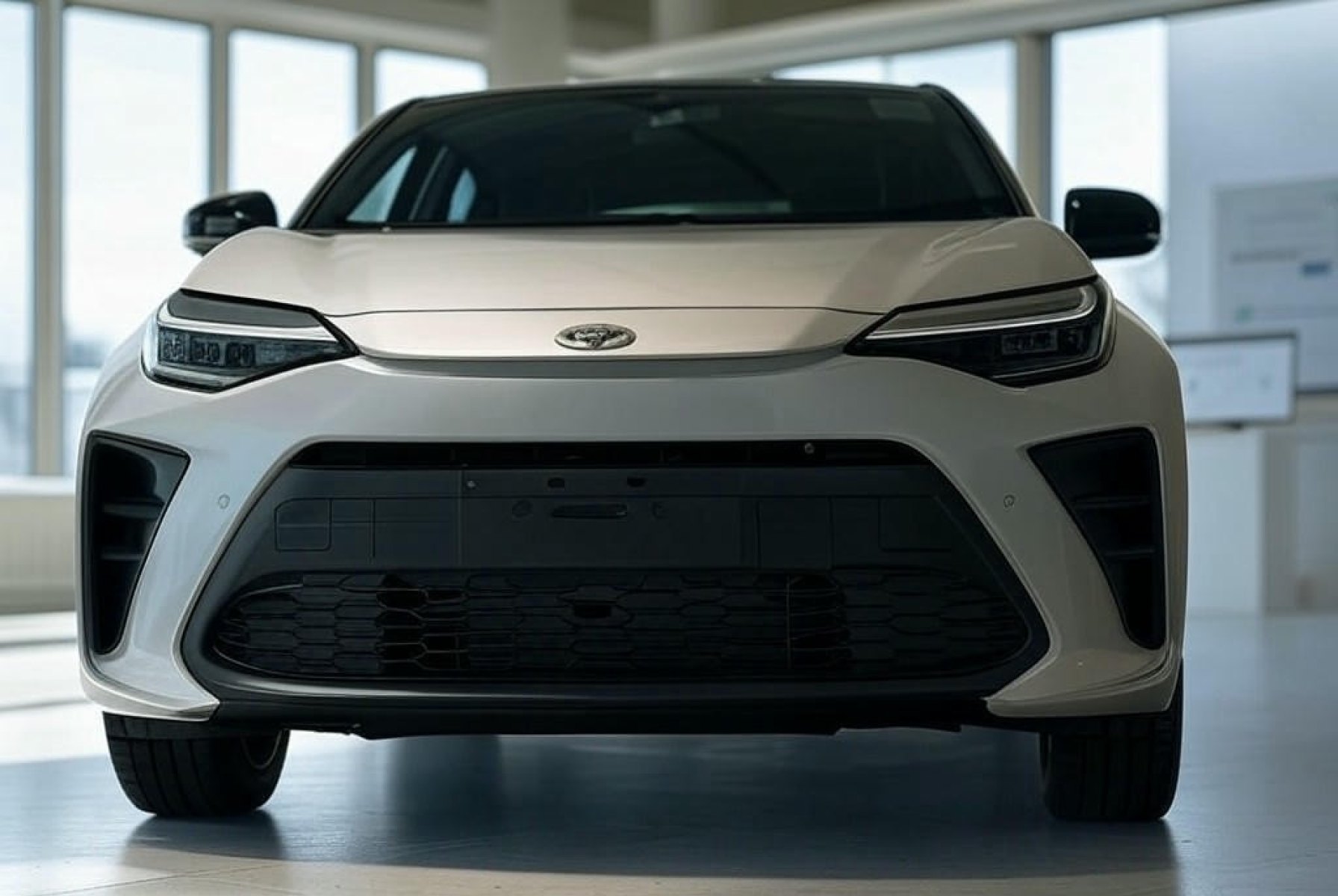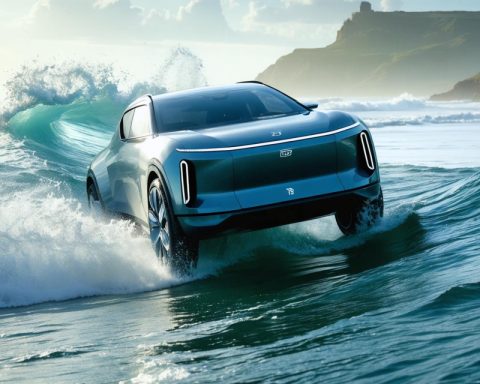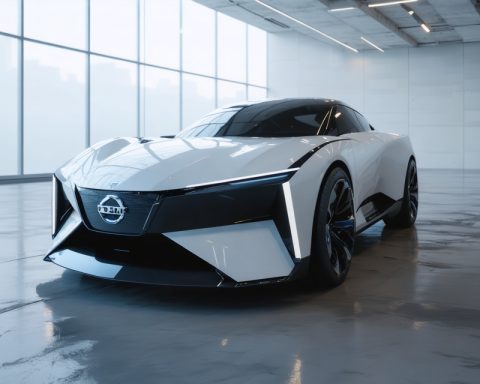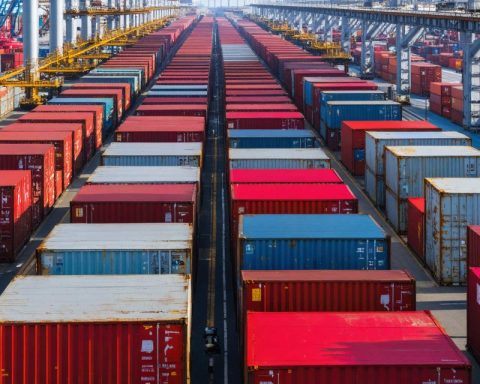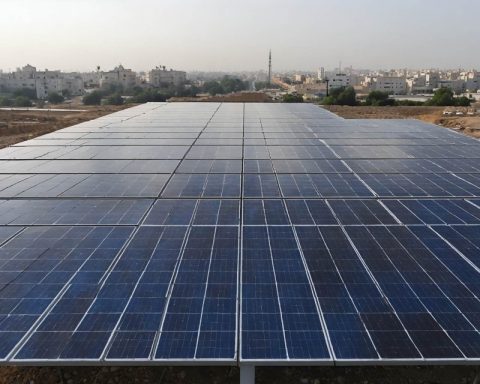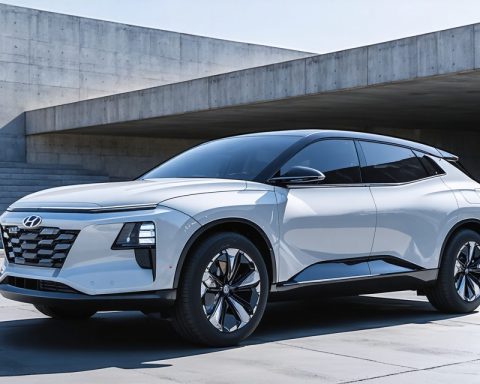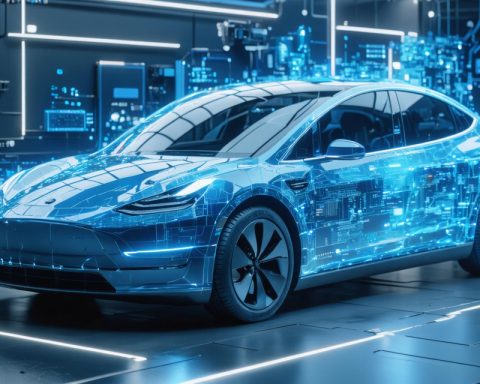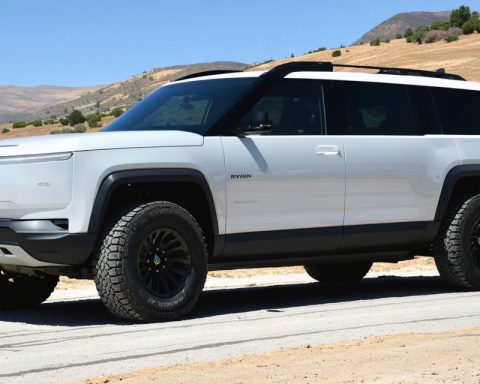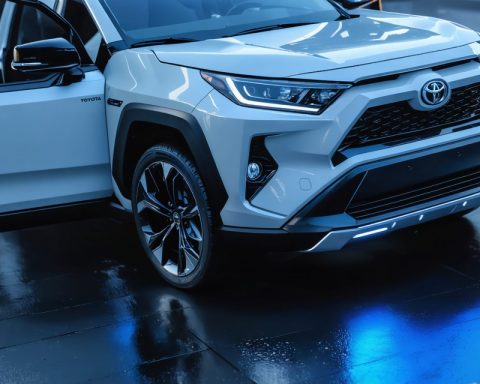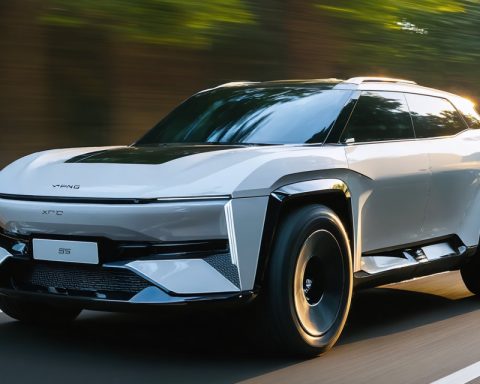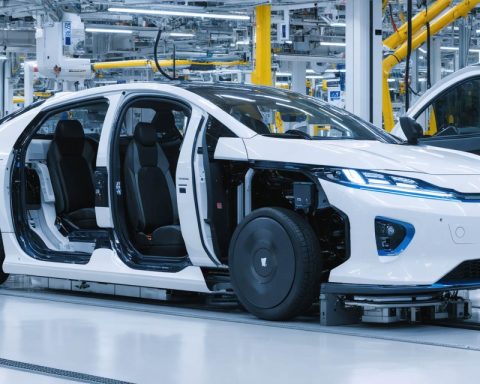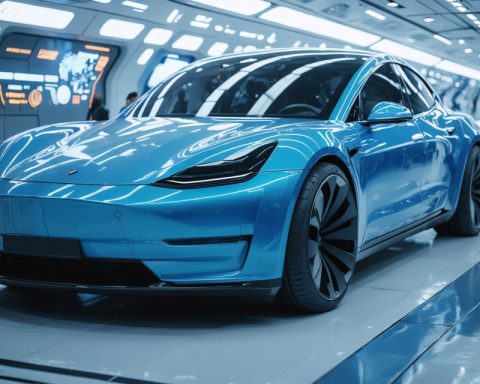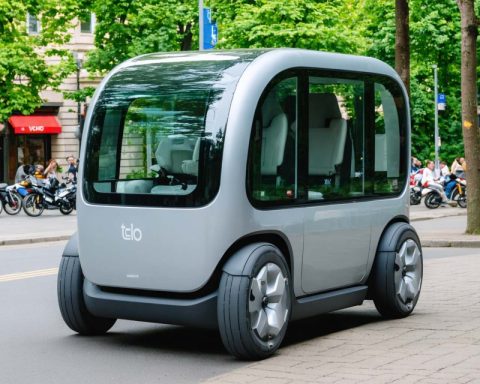- Toyota unveiled the next-generation Lexus EV concept at the 2023 Japan Mobility Show, highlighting its commitment to electric vehicles.
- The automaker is delaying its planned state-of-the-art battery factory in Fukuoka Prefecture from 2025 to 2028 to reassess its electric vehicle production strategy.
- The delay reflects the fluctuating demand for EVs and Toyota’s cautious approach to aligning with market needs.
- The Fukuoka plant aims to advance battery technology, enhancing range and charging efficiency for Lexus electric vehicles.
- Toyota’s strategic pause underscores the need for innovation, patience, and adaptability in the evolving automotive industry.
- The company’s recalibration illustrates the global automotive landscape’s dynamic nature, where flexibility is crucial for success.
Autumn leaves danced around Toyota’s grand unveiling at the 2023 Japan Mobility Show, where the automaker boldly introduced the next-generation Lexus EV concept car. Yet, beneath the bright lights of its global debut, shadows of an unexpected delay loomed large for the automotive titan.
In a move that signals measured recalibration in the face of a shifting landscape, Toyota has pressed the pause button on its ambitious plans to erect a state-of-the-art battery factory in Fukuoka Prefecture. This plant, initially scheduled to break ground in 2025, promised to be a cornerstone of Toyota’s electric future. However, the detailed signing ceremony with the local government, originally slated for April, is now postponed as Toyota reassesses the strategy behind its electric vehicle (EV) production timeline.
Koji Sato, Toyota’s president, recently met with Seitaro Hattori, the governor of Fukuoka, to officially relay the decision to delay construction. This meeting underscored the automaker’s cautious approach as it navigates a market experiencing fluctuating demand for electric vehicles. Despite its later entry into the EV market, Toyota has continuously announced new investment strategies, striving to forge its path in the evolving automotive ecosystem.
While Toyota and its subsidiary, Toyota Battery Manufacturing in Kosai City, Shizuoka Prefecture, have secured a plot in the New Matsuyama Seaside Industrial Park in Kanda Town, Fukuoka, the commencement of operations has been pushed to 2028. This strategic site is envisioned as a hub for advancing battery technology, targeting enhancements in both range and charging efficiency — key elements to propel Lexus, Toyota’s luxury brand, into the next level of electric mobility.
The delay reflects a global reality where the demand curve for EVs is not only dictated by technology but also by the intricate weave of consumer interest and economic factors. Toyota is steering towards ensuring its offerings align precisely with what the future driver covets — sustainability, luxury, and performance.
As Toyota revamps its roadmap, its journey highlights a broader narrative within the automotive industry. Innovation, though urgent, demands patience and precision. A company renowned for its methodical planning and engineering excellence now recalibrates for a new era, ensuring its steps are as robust as the vehicles it produces.
The takeaway? In the relentless race towards an electric future, even giants must sometimes pause and adjust their trajectory to ensure they pave the way to success. This recalibration not only signifies Toyota’s adaptability but also emphasizes the dynamic nature of the global automotive landscape, where the ability to pivot is as crucial as the drive itself.
Behind the Scenes of Toyota’s Strategic Delay: What It Means for the Future of EVs
Understanding Toyota’s Strategic Pause
Toyota’s decision to delay the construction of its battery factory in Fukuoka Prefecture demonstrates a thoughtful recalibration amid fluctuating global demand for electric vehicles (EVs). The plant, initially set for 2025 but now pushed to 2028, is central to Toyota’s ambitious EV plans, particularly for its luxury brand, Lexus.
Pressing Questions and Insights
1. Why the Delay?
– The delay reflects a combination of strategic reassessment and market dynamics. With demand for EVs heavily influenced by consumer interest and economic conditions, Toyota is ensuring it aligns its production capacity with market realities.
2. What Does This Mean for the EV Market?
– Industry analysts suggest that Toyota’s delay indicates a more cautious industry-wide approach to EV rollouts, focusing on long-term sustainability over rapid expansion. This pause allows Toyota to enhance battery technology, particularly in range and charging efficiency, which aligns with consumer preferences for high-performance electric vehicles.
3. Impact on the Industry
– Toyota’s actions underscore the global shift towards adaptable and sustainable business models. Competitors may also follow suit by reevaluating their timelines and strategies in response to evolving market conditions.
Features & Specifications
– Enhanced Battery Technology: The planned factory will focus on producing batteries with better range and faster charging capabilities, which are critical as Lexus aims to redefine luxury in the EV space.
– Sustainability Commitments: Toyota’s focus remains on eco-friendly materials and manufacturing processes to minimise environmental impact.
Market Forecasts & Industry Trends
– Growth Prospects: Despite delays, the EV market is projected to grow significantly. McKinsey reports a potential increase in global EV sales, reaching up to 50% of the light vehicle market by 2030.
– Technological Breakthroughs: Advancements in solid-state batteries could revolutionise the industry, with Toyota being at the forefront of this research.
Controversies & Limitations
– Consumer Skepticism: There is ongoing debate about the actual environmental benefits of EVs, considering the lifecycle emissions from battery production and disposal.
– Infrastructure Challenges: The expansion of charging infrastructure is vital to supporting increased EV adoption, and delays like Toyota’s may impact broader infrastructure development timelines.
Pros & Cons Overview
Pros:
– Strategic delay ensures better market alignment.
– Focus on advanced battery technology and sustainability.
– Reinforces Toyota’s reputation for quality and reliability.
Cons:
– Short-term concerns about market competitiveness.
– Potential delays in product launches and revenue streams.
Actionable Recommendations
– For EV Enthusiasts: Stay informed about emerging technologies and choose EV models that prioritise advancements in range and charging.
– For Investors: Watch Toyota’s strategy closely as it might set industry standards, affecting related sectors like battery production and renewable energy.
– For Consumers: Consider infrastructure availability and potential incentives when purchasing an EV.
Conclusion
Toyota’s decision to delay its Fukuoka factory exemplifies a strategic pivot in the rapidly evolving EV landscape. While this move underscores the complexity of aligning production with demand, it also highlights Toyota’s commitment to extraordinary precision in its path to innovation. As the automotive sector optimistically looks towards a sustainable future, adaptability, and strategic foresight will pave the way to success.
For more insights on Toyota and its future plans, visit Toyota Global.
